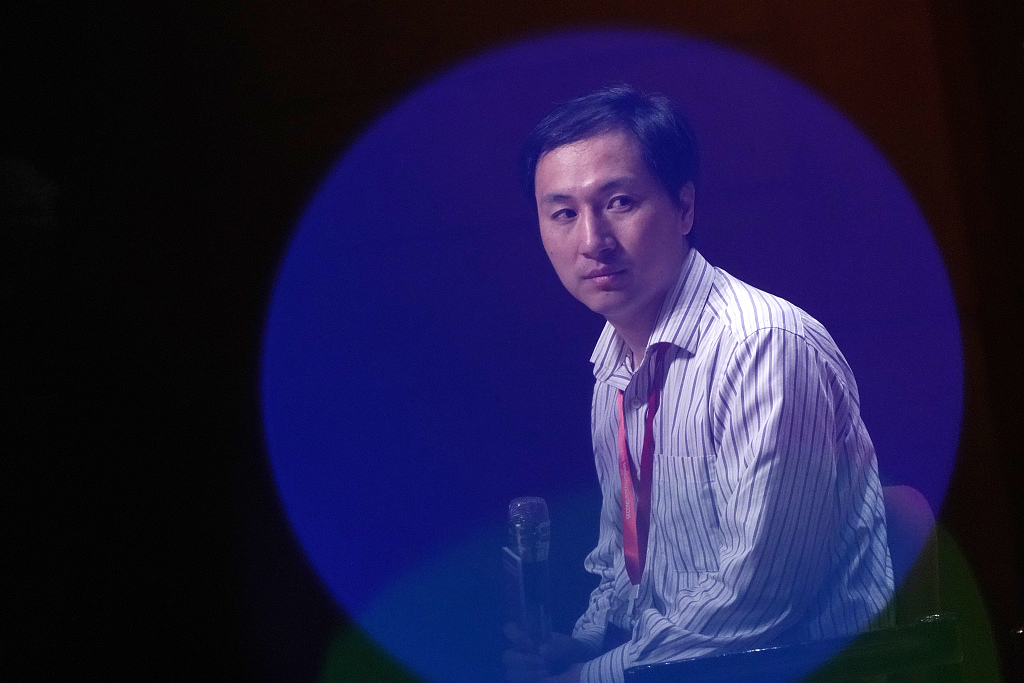BEIJING, Nov. 29 (Xinhua) -- Chinese authorities on Thursday ordered suspending research activities of persons involved in the gene-edited babies incident, denouncing the matter as "extremely abominable in nature" and in violation of Chinese laws and science ethics.

He Jiankui, associate professor at the Southern University of Science and Technology of China, attends a panel discussion at the Second International Summit on Human Genome Editing in Hong Kong, China, on Wednesday, Nov. 28, 2018. (Photo: VCG)
The gene-edited twins matter reported by the media has brazenly violated Chinese laws and regulations and breached the science ethics bottom line, which is both shocking and unacceptable, Xu Nanping, vice minister of the Ministry of Science and Technology, told Xinhua.
Xu said the ministry is firmly against the research, noting that clinical procedures of gene-editing on human embryos for reproduction purposes are explicitly banned in China.
The ministry has ordered relevant units to impose the suspension, said Xu.
He Jiankui, a Chinese researcher based in Shenzhen, Guangdong Province, claimed on Monday to have altered the DNA of twin girls born a few weeks ago to prevent them from contracting HIV. His claim remains unproven but the incident has triggered a heated debate in the scientific community and on social media.
China's National Health Commission (NHC) also spoke against the incident. Zeng Yixin, deputy head of the NHC, said unlawful activities on the matter will be investigated and wrongdoings will be resolutely dealt with.
As science and technology gain rapid progress, research and applications in this field must shoulder more responsibilities, and codes of ethics should be strictly abided by, Zeng added.
The China Association for Science and Technology (CAST), a research society mainly comprised of researchers and scientists, said He Jiankui's candidacy of an award for young scientists will be disqualified, as CAST adopts a "zero tolerance" attitude to those who breach scientific ethics and norms.
Huai Jinpeng, Party chief and executive vice chairman of CAST, characterized the matter as "extremely abominable in nature" and said it has seriously damaged the image and interests of the Chinese scientific community.
People and institutions involved in the matter have "brazenly challenged the bottom line of scientific research ethics and desecrated the spirit of science," said Huai.
"The Chinese scientific community is committed to its original aspiration that science and technology shall always serve mankind and sustained healthy development of society," he noted.


